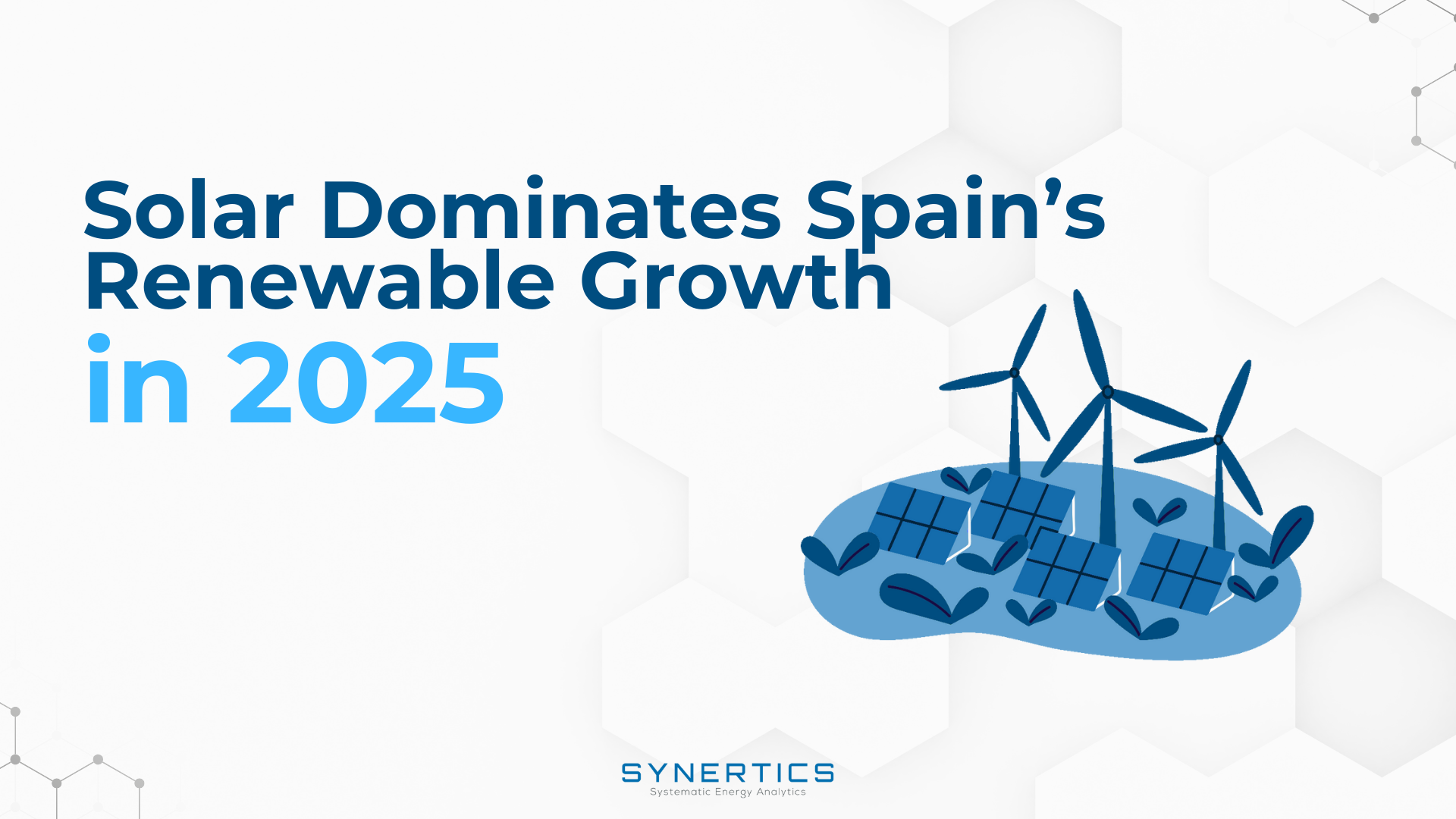Join us on our journey towards renewable energy excellence, where knowledge meets innovation.
In this May edition of the Energy News Roundup, we look at Germany’s resistance to ENTSO-E’s proposal to split its power price zone and the EU’s ambitious plan to phase out all Russian energy imports by 2027. We also cover the unprecedented blackout that hit Spain and Portugal, a sharp drop in European power prices since early 2025 peaks, and the EU’s exploration of flexibility options for its 2040 climate targets.

Germany Resists ENTSO-E Plan to Split Power Price Zone
European TSOs have proposed splitting Germany’s single electricity price zone into up to five bidding zones to improve efficiency and cut grid costs. ENTSO-E estimates this could save up to €339 million annually by better aligning power generation in the north with industrial demand in the south and reducing costly grid bottlenecks. Due to limited transmission capacity, TSOs must often take expensive balancing actions, distorting prices within Germany and across borders.
Germany’s government, southern states, and key industries oppose the plan, arguing it would disrupt the ongoing north-south grid expansion and raise regional prices. EU member states now have six months to decide on the recommendation. If no consensus is reached, the European Commission will have another six months to make a final decision.
EU Sets Ambitious 2027 Deadline to End Reliance on Russian Energy
The European Commission has released a detailed roadmap to completely phase out the EU’s dependence on Russian gas, oil, LNG, and nuclear fuel by the end of 2027. The plan comes as part of the EU’s broader response to Russia’s invasion of Ukraine and aims to cut off key sources of revenue for the Kremlin. EU countries will be required to submit national plans this year for phasing out Russian energy imports.
While progress has already been made, with Russian gas imports falling from 45% in 2021 to 19% in 2024, and oil down from 27% to just 3%, nuclear fuel remains a vulnerability, with Russia still supplying over 14% of the EU’s uranium. The Commission stressed that the transition will be gradual to ensure economic stability, with a focus on accelerating renewable energy deployment, improving efficiency and diversifying energy sources.
Unprecedented Power Outage Shuts Down Spain and Portugal,
A massive power outage on the 28th of April plunged large parts of Spain and Portugal into darkness, disrupting transport and communications, shutting down offices and industry, and bringing commerce to a standstill. The blackout left millions without electricity for hours and prompted immediate government investigations.
The grid had suffered from significant instability in the days before the blackout, with Spain experiencing several smaller power glitches. Industry officials repeatedly warned about growing vulnerabilities, citing the increasing complexity of managing the system. Although Spanish Prime Minister Pedro Sánchez and grid operator REE insist that record levels of renewables were not to blame, both REE and ENTSO-E had earlier cautioned that the rapid rise in renewable energy generation could strain grid stability
European Power Prices Drop Sharply from Early 2025 Peaks
European power prices have dropped sharply from their early-2025 peaks, offering relief to consumers and businesses. Wholesale spot prices across much of continental Europe have more than halved since hitting two-year highs in early 2025, driven by a steep drop in regional natural gas costs, which are down over 30% since January, and stronger solar output.
The year began with challenges: wind power generation in Q1 2025 fell 15% compared to the same period in 2024, prompting increased reliance on gas-fired plants. As a result, natural gas made up nearly 26% of Europe’s electricity mix in Q1, well above seasonal norms. This surge in gas demand temporarily pushed prices higher. With winter over and gas use declining, prices have eased. In April, wholesale power prices in Germany were 50% lower than February peaks, dropping from €144/MWh to €72/MWh. Similar drops can be seen in other EU countries.
EU Considers Flexibility Options for 2040 Climate Target Amid Backlash
The European Commission is exploring ways to ease the EU’s ambitious 2040 climate goal to cut 90% of greenhouse gas emissions, following growing concerns from heavy industries and agriculture. Wopke Hoekstra, the EU Climate Commissioner, is considering several "flexibilities" to make the target more feasible.
These options include allowing countries to defer emission cuts or purchase international carbon credits, incorporating carbon reduction efforts through forests or technology, and offering a nonlinear emissions path, with slower initial cuts but faster reductions later. Another idea is to adjust sector-specific targets, enabling more flexibility for industries facing difficulties in meeting their obligations. However, civil society groups have expressed concerns, arguing that these proposals could weaken the EU’s overall climate strategy.

Insights
22nd Jan, 2026

Insights
12th Jan, 2026

Insights
12th Jan, 2026